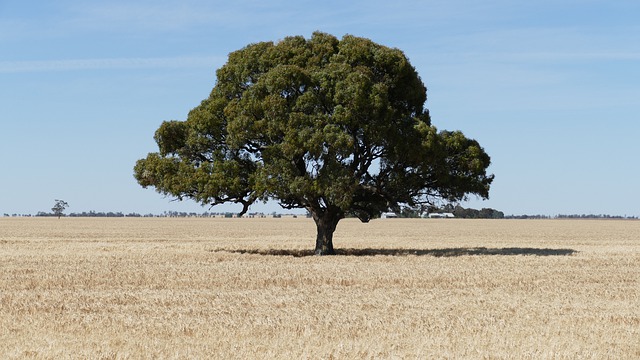Decoding the genomes of around ten cultivated plant species is a varietal selection method. It will expedite the development of new varieties which are crucial for a successful agroecological transition in French farming, without compromising on performance.

In 2011, the maize genome had been decoded for several years – but not domesticated wheat, which is much more complex. Its hexaploid genome has 42 chromosomes, or rather seven chromosomes with six copies each (7×6), which generates significant diversity between plants. This lack of knowledge limited varietal research.
To address this anomaly, the agriculture G20 which met in Paris this year decided to launch a research programme to decode the wheat genome, creating the means to select new varieties which are more resistant to hostile weather conditions for successful cereal development (drought, cold temperatures, salt, etc.).
In France, this project is called Breedwheat. For eight years, it has been one of nine future investment programmes coordinated by Inra (the French institute of agronomic research, now INRAE), technical institutes and partner companies within the GIS BV, the “Green biotechnologies” scientific interest group.
Currently, a panel of 450 wheat accessions (seed lots) covering genetic diversity which is poorly represented in the European Union will be used as a resource to select new varieties based on new criteria.
Developing innovative varieties for more efficient agriculture

Amongst these 450 identified seed lots, the genome regions which have the characteristics of wheat varieties resistant to disease or which are drought-tolerant are more clearly identified. These characteristics are also more easily integrated into the genetic make-ups of new varieties which the selectors want to develop.
“Generating the knowledge required to develop innovative varieties for more efficient agriculture” is one of the objectives of the projects funded by the GIS BV. For this purpose, researchers have made use of all of the known structural genome technologies (genome sequencing, gene identification, regulatory sequences, repeated sequences, etc.).
 For example, the Aker investment programme on sugar beet will provide farmers with the resources and researchers with the genetic knowledge to develop beet varieties able to germinate at low temperatures, in early spring, to help withstand heatwaves. Disease resistance and reduced use of pesticides were also some of the cross-cutting themes discussed.
For example, the Aker investment programme on sugar beet will provide farmers with the resources and researchers with the genetic knowledge to develop beet varieties able to germinate at low temperatures, in early spring, to help withstand heatwaves. Disease resistance and reduced use of pesticides were also some of the cross-cutting themes discussed.
Through their eight programmes, “since 2011 researchers have acquired a better genetic understanding of the plants studied. They have focused their efforts on genome sequencing, overall functioning but also gene expression, the molecules produced”, explains the GIS BV.
Powerful phenotyping bioinformatics tools
Amongst the thousands of varieties studied, researchers created a panel of plants representing the cultivated and wild genetic variability not yet used. Other than the 450 wheat accessions mentioned above, 15 plants were a perfectly representative sample of the genetic diversity useful for beet crops. For maize, a pangenome (stock) of 4,600 genes was created, which were missing from the US reference collection. These genes will be used in other research programmes.
 The researchers involved in future investment programmes also have access to powerful phenotyping bioinformatics tools to understand genome expression by observing the plants.
The researchers involved in future investment programmes also have access to powerful phenotyping bioinformatics tools to understand genome expression by observing the plants.
Phenome, the French varietal phenomics infrastructure (2), classifies hundreds of plants which experience the most diverse weather conditions, and in particular, environmental scenarios linked to climate change.
Finally, the reduced use of inputs requires considerable research efforts so that agriculture has the means to secure countries’ food sovereignty, particularly in France. The Peamust programmes aim to make these countries more self-sufficient in plant proteins. For peas and broad beans, for example, researchers have identified the markers resistant to frost and drought.
“Thanks to a public-private partnership, innovations established from this knowledge have been circulated amongst plant selection partners, allowing their routine use in practice”, explains the GIS BV. The circulation and availability of information collected from a wide range of companies helps them to shorten the period to obtain new varieties, up to 5-6 years vs. 8-10 years currently.
- Akerfor beets, Amaizing for maize, BFF or Biolaa for the future, Breedwheat for wheat, Genius for wheat, maize, rice, tomatoes or potatoes, Peamust for peas and broad beans, Phenome for infrastructure, Rapsodyn for rapeseed, and Sunrise for sunflower.
- Based on spectroscopy, a technology which studies light rays.
Frédérique Hénin




